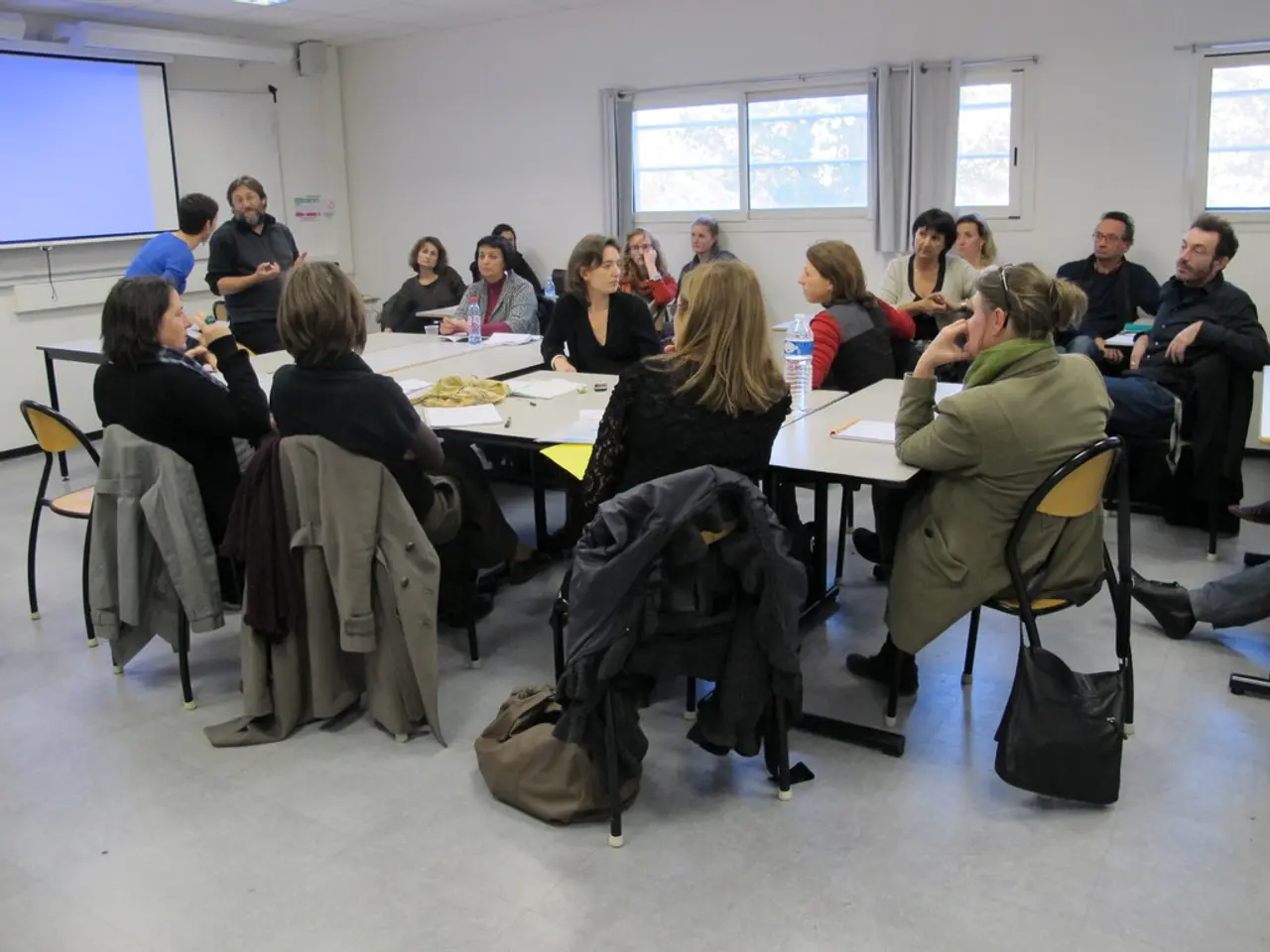Struggles of Emotionally Vulnerable Individuals in Romantic Connections and Strategies to Conquer Communication Hindrances
In the realm of personal relationships, a specific personality trait often causes difficulties: people-pleasing. This behaviour, characterized by prioritizing others' needs over one's own, can lead to feelings of resentment, disconnection, and a loss of self-identity[1][3].
People-pleasers may find themselves sacrificing their authenticity to maintain harmony, a practice that can prove detrimental to their relationships in the long run. However, there is hope. By adopting effective communication strategies, people-pleasers can improve their relationships while maintaining their integrity and well-being.
One such strategy is the use of "I" statements. By expressing feelings and needs without putting others on the defensive, individuals can maintain assertiveness while remaining empathetic[2]. Another approach is active listening and validation, often referred to as GIVE: being gentle, interested, validating others' feelings, and maintaining an easy manner[4].
Maintaining self-respect is also crucial. This can be achieved through the FAST method: being fair, apologizing when necessary, sticking to one's values, and being truthful[4]. Setting boundaries is another essential step to protect mental health and prevent overcommitting[2][3]. Lastly, prioritizing authenticity, even if it means navigating some discomfort, can lead to healthier and more fulfilling relationships[1].
Seeking professional help, such as therapy or counseling, can provide valuable guidance, support, and tools for navigating relationship challenges effectively[5]. Many therapists now offer online or remote sessions, making it more accessible for individuals to seek the help they need[6]. Online directories like Psychology Today can help individuals find therapists or counselors in their area who specialize in relationship issues[6].
Developing self-awareness is also key. This can be achieved through regular self-reflection, introspection, journaling, meditation, or seeking therapy[7]. Addressing the root causes of the trait, such as past traumas, unresolved emotional wounds, or learned behaviours from childhood experiences, is crucial for improving relationships[8].
In conclusion, understanding the common experiences of discomfort and misunderstanding in relationships is important for addressing them effectively and working towards healthier relationships[9]. By implementing the strategies outlined above, people-pleasers can improve their relationships while maintaining their integrity and well-being.
By employing effective communication skills, such as using "I" statements and practicing active listening, people-pleasers can enhance their relationships without compromising their integrity or self-identity [2][4]. Additionally, focusing on personal growth, education, and self-development, like learning about the FAST method, setting boundaries, and fostering self-awareness, can contribute significantly to one's lifestyle and help navigate and establish healthier, more fulfilling relationships [4][7][8].




